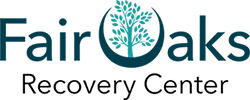Talking to Your Relatives About Recovery
As you consider spending time with relatives whom you might not see regularly, especially during the holiday season, it’s not always easy to be sure who knows what about your recovery journey. There could have been some gossip about you going into treatment. Or maybe not everyone is aware of your transformation into sobriety. Whether you choose to talk about your recovery is up to you, even if you are asked about it. But if you’d like to share your story with your relatives, here are some tips we hope will help.
How to Talk About Recovery With Relatives
To get started, you may have to establish some boundaries, determine appropriate topics, and offer other resources to reduce myths and stigmas about your situation and addiction in general. Ideally, you don’t want this chapter of your life to be exposed during the heat of a disagreement or amidst a flurry of holiday activities. Choose a quiet moment, with maybe just one or two people—not everyone gathered around the Thanksgiving table, for example!
If it’s your choice to speak up about your experiences, there are many different ways to do this.
- Summarize what happened that led to your addiction. Consider who you’re talking with and why certain information may matter. Use “I” statements and only provide the information you feel comfortable sharing.
- Explain how rehabilitation treatment benefitted you. Statistics from the American Hospital Association indicate that “over 46 million Americans aged 12 and older have a substance use disorder…roughly 16.5% of the population…but only 6% received treatment.” Sharing your story may help your relatives understand the challenges involved in your journey and what you’re doing to overcome them.
- Make amends. At Fair Oaks Recovery Center, using 12-Step programs is an essential part of the rehab approach. Step 9 is making amends, if you can, to anyone harmed by your substance and alcohol misuse, as long as it doesn’t create more conflict to do so.
- Describe the recovery process. Many people think once you’ve been through rehab, the hard part of recovery is over. For some individuals, this may be true. For others, each day presents a different awareness of life free of substances, and what may have caused addiction in the first place still requires attention. It may be necessary with certain family members to address key issues of mental illness, along with conflict, shame, blame, abuse, and other catalysts of substance use. Perhaps you can also talk about how you control triggers and other methods you use to stay sober.
- Tell them what you need from them. This is a critical component, and honesty is the only way to secure proper support. You might need help maintaining a healthful distance from certain family members, for example, if they contribute negatively to your well-being. Stay rational, calm, and direct in your approach.
Be prepared for people to offer all sorts of opinions and advice. Try to stay gracious and understanding, and be open to discussion. You’re under no obligation to do anything but what your treatment plan outlines.
Offer Other Addiction and Recovery Resources
It’s only natural that your family members will want to ask questions. You can answer the ones you feel comfortable with in whatever language and detail feel appropriate for you. If you choose not to, simply say, “I don’t have an answer for that right now. Perhaps we can talk about it another time.” This “I” statement is non-confrontational, gently reinforces your boundaries, and leaves the door open for discussion in the future so the other person feels heard as well.
However, there’s no need to feel as though you’re the only spokesperson for substance use disorder and alcohol use disorder. It might be more helpful to encourage your family members to learn about addiction on their own. This neutralizes the topic a bit more, eliminates some of the stigma surrounding addiction, and helps all of you find common ground. Some books that may help include:
Reach Out to Your Fair Oaks’ Alumni
Without question, your alumni connections have been down this same road a time or two. Consider asking some of them how they handle family questions with grace and patience.
Fair Oaks Recovery Center in Sacramento, California, is a licensed Chemical Dependency Recovery Hospital, issued by the California Department of Public Health to addiction rehabilitation and dual diagnosis treatment facilities. We believe our alumni group provides a strong sense of community, support, and understanding to reinforce your sobriety goals—hopefully, you will, too. Call us for more information.
BrightEdge\BEIXFClient Object
(
[connectTime:BrightEdge\BEIXFClient:private] => 55
[_get_capsule_api_url:BrightEdge\BEIXFClient:private] => https://ixfd1-api.bc0a.com/api/ixf/1.0.0/get_capsule/f00000000296879/271348941?client=php_sdk&client_version=1.5.12&base_url=https%3A%2F%2Ffairoaksrecoverycenter.com%2Fblog%2Ftalking-to-your-relatives-about-recovery%2F&orig_url=https%3A%2F%2Ffairoaksrecoverycenter.com%2Fblog%2Ftalking-to-your-relatives-about-recovery%2F&user_agent=Mozilla%2F5.0+AppleWebKit%2F537.36+%28KHTML%2C+like+Gecko%3B+compatible%3B+ClaudeBot%2F1.0%3B+%2Bclaudebot%40anthropic.com%29
[displayCapsuleUrl:BrightEdge\BEIXFClient:private] => https://ixfd1-api.bc0a.com/api/ixf/1.0.0/get_capsule/f00000000296879/271348941
[capsule:BrightEdge\BEIXFClient:private] => BrightEdge\Capsule Object
(
[accountId:protected] => f00000000296879
[publishingEngine:protected] => ixf-compiler
[dateCreated:protected] => 1.73632801687E+12
[datePublished:protected] => 1.73632801687E+12
[version:protected] => 1.0.0.0
[capsuleNodeList:protected] => Array
(
[0] => BrightEdge\Node Object
(
[type:protected] => bodystr
[dateCreated:protected] => 1.7363280185E+12
[datePublished:protected] => 1.73632801687E+12
[publishingEngine:protected] => link-block
[engineVersion:protected] => 1.0.0.0
[metaString:protected] =>
[content:protected] =>
[feature_group:protected] => body_1
[redirectType:BrightEdge\Node:private] =>
[redirectURL:BrightEdge\Node:private] =>
)
[1] => BrightEdge\Node Object
(
[type:protected] => headstr
[dateCreated:protected] => 1.73632801857E+12
[datePublished:protected] => 1.73632801687E+12
[publishingEngine:protected] => app-js
[engineVersion:protected] => 1.0.0.0
[metaString:protected] =>
[content:protected] =>
[feature_group:protected] => _head_open
[redirectType:BrightEdge\Node:private] =>
[redirectURL:BrightEdge\Node:private] =>
)
)
[configList:protected] => stdClass Object
(
[page_groups] => Array
(
[0] => stdClass Object
(
[priority] => 1
[include_rules] => Array
(
[0] => .*fairoaksrecoverycenter\.staging\.tempurl\.host\/.*
)
[name] => staging
[exclude_rules] => Array
(
)
)
[1] => stdClass Object
(
[priority] => 2
[include_rules] => Array
(
[0] => fairoaksrecoverycenter\.com
)
[name] => Global Settings
[exclude_rules] => Array
(
)
)
)
)
[pageGroupNodes:protected] => Array
(
[0] => BrightEdge\Node Object
(
[type:protected] => bodystr
[dateCreated:protected] => 1.7363280185E+12
[datePublished:protected] => 1.73632801687E+12
[publishingEngine:protected] => link-block
[engineVersion:protected] => 1.0.0.0
[metaString:protected] =>
[content:protected] =>
[feature_group:protected] => body_1
[redirectType:BrightEdge\Node:private] =>
[redirectURL:BrightEdge\Node:private] =>
)
)
[allPageGroupNodes:protected] => stdClass Object
(
[excluded_config] => Array
(
[0] => stdClass Object
(
[feature_group] => body_1
[engine_version] => 1.0.0.0
[content] =>
[date_published] => 1736328016866
[date_created] => 1736328018500
[type] => bodystr
[publishing_engine] => link-block
)
)
[staging] => Array
(
[0] => stdClass Object
(
[feature_group] => body_1
[engine_version] => 1.0.0.0
[content] =>
[date_published] => 1736328016866
[date_created] => 1736328018500
[type] => bodystr
[publishing_engine] => link-block
)
)
[Global Settings] => Array
(
[0] => stdClass Object
(
[feature_group] => body_1
[engine_version] => 1.0.0.0
[content] =>
[date_published] => 1736328016866
[date_created] => 1736328018503
[type] => bodystr
[publishing_engine] => link-block
)
)
)
[pageGroup:protected] => Global Settings
)
[_capsule_response:BrightEdge\BEIXFClient:private] => {
"account_id": "f00000000296879",
"date_published": 1736328016866,
"key": "-0",
"is_universal_capsule_enabled": "false",
"capsule_version": "1.0.0.0",
"engine_version": "1.0.0.0",
"version": 2,
"date_created": 1736328016866,
"nodes": [
{
"feature_group": "body_1",
"engine_version": "1.0.0.0",
"content": "",
"date_published": 1736328016866,
"date_created": 1736328018503,
"type": "bodystr",
"publishing_engine": "link-block"
},
{
"feature_group": "_head_open",
"engine_version": "1.0.0.0",
"content": "\n\n\n",
"date_published": 1736328016866,
"date_created": 1736328018572,
"type": "headstr",
"publishing_engine": "app-js"
}
],
"config": {
"page_groups": [
{
"priority": 1,
"include_rules": [
".*fairoaksrecoverycenter\\.staging\\.tempurl\\.host\\/.*"
],
"name": "staging",
"exclude_rules": []
},
{
"priority": 2,
"include_rules": [
"fairoaksrecoverycenter\\.com"
],
"name": "Global Settings",
"exclude_rules": []
}
]
},
"publishing_engine": "ixf-compiler",
"page_group_nodes": {
"excluded_config": [
{
"feature_group": "body_1",
"engine_version": "1.0.0.0",
"content": "",
"date_published": 1736328016866,
"date_created": 1736328018500,
"type": "bodystr",
"publishing_engine": "link-block"
}
],
"staging": [
{
"feature_group": "body_1",
"engine_version": "1.0.0.0",
"content": "",
"date_published": 1736328016866,
"date_created": 1736328018500,
"type": "bodystr",
"publishing_engine": "link-block"
}
],
"Global Settings": [
{
"feature_group": "body_1",
"engine_version": "1.0.0.0",
"content": "",
"date_published": 1736328016866,
"date_created": 1736328018503,
"type": "bodystr",
"publishing_engine": "link-block"
}
]
}
}
[allowDirectApi:BrightEdge\BEIXFClient:private] => 1
[debugMode:BrightEdge\BEIXFClient:private] =>
[disableRedirect:BrightEdge\BEIXFClient:private] =>
[deferRedirect:BrightEdge\BEIXFClient:private] =>
[_normalized_url:BrightEdge\BEIXFClient:private] => https://fairoaksrecoverycenter.com/blog/talking-to-your-relatives-about-recovery/
[_original_url:BrightEdge\BEIXFClient:private] => https://fairoaksrecoverycenter.com/blog/talking-to-your-relatives-about-recovery/
[client_user_agent:BrightEdge\BEIXFClient:private] => Mozilla/5.0 AppleWebKit/537.36 (KHTML, like Gecko; compatible; ClaudeBot/1.0; +claudebot@anthropic.com)
[errorMessages:protected] => Array
(
)
[profileHistory:protected] => Array
(
[0] => Array
(
[0] => constructor
[1] => 55
)
[1] => Array
(
[0] => getFeatureString
[1] => 0
)
[2] => Array
(
[0] => getFeatureString
[1] => 0
)
)
[config] => Array
(
[sdk.environment] => production
[api.endpoint] => https://ixfd1-api.bc0a.com
[sdk.charset] => UTF-8
[sdk.account] => f00000000296879
[sdk.connectTimeout] => 1000
[sdk.socketTimeout] => 1000
[sdk.crawlerConnectTimeout] => 1000
[sdk.crawlerSocketTimeout] => 1000
[whitelist.parameter.list] => ixf
[forcedirectapi.parameter.list] => ixf-api|ixf
[flat.file] => true
[sdk.proxyPort] => 0
[sdk.proxyProtocol] => http
[crawler.useragents] => google|bingbot|msnbot|slurp|duckduckbot|baiduspider|yandexbot|sogou|exabot|facebot|ia_archiver|brightedge
[content.base.path] => /nas/content/live/fairoaksrecove/wp-content/themes/valley
[diagnostic.type] => full_encrypted
[diagnostic.string] => 1
[capsule.mode] => remote.prod.capsule
[page.independent] => false
)
)



